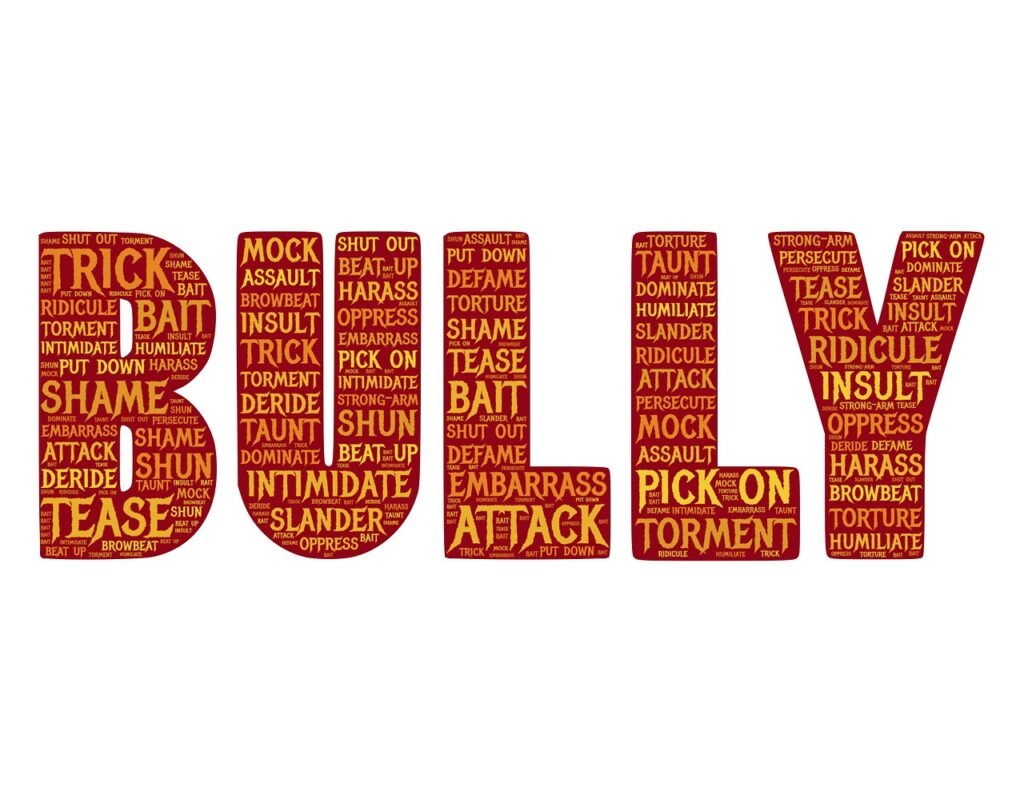
Bullying is an ever-growing concern in our country. With novel issues such as race inclusion, the gender identity crisis, therians, etc. our children are growing up in a world of confusion. Bullying among children is an epidemic, but what if I told you that YOU as the parent could be partly to blame?
Be warned, my friends, I might offend you with this; but hear me out! If you see these red flags in your parenting style, you may actually be contributing to a bullying mentality without even realizing it!
Obsessed With Fitting In
If I asked you, “Is it important for your child to fit in?”
I think most would answer with, “Pretty important”.
No one wants their child to be bullied or left out, so we sometimes focus on pushing them into activities and groups that we feel will keep them included and well-liked. This must be done carefully, though. If we put too much importance on “fitting in”, we may incidentally also be condoning a loss of identity for our child, low self-esteem, and mental health issues.
Instead, we should be encouraging individuality, positive self-image, and acceptance despite differences. Peer pressure alone can be intense, but more and more parents are pushing their kids to be a part of “the in crowd”. Conforming, however, can lead to superficial relationships, risky behaviors, and compromised values.
Sadly, I can think of multiple people I know personally whose teenage children are very popular in school, and the parents brag about how good a person their teen is….but I also know other parents who have complained about their own child being bullied by that teen. The parents of that teen would quite seriously argue if I told them I knew their child bullied classmates. Understandably, we don’t want to see anything but the best in our children.
But this is foolishness on our part. Our children’s future success depends on our ability to hold them responsible for their words and actions. We must teach our children to be accountable and also be true to themselves. Not what is simply trendy, or ‘in’.
Friendship/Permissive Parenting
Often people mistake Gentle Parenting with Being Friends. We confuse giving them choices with removing necessary boundaries. Children need consequences for negative behaviors, or they learn they can act as they wish without repercussions.
While working in daycare, we once had a boy who often bullied his classmates. He would hit, bite, or take toys from his friends, and did not follow rules. I was always meticulous in focusing on his achievements and positive behaviors just as much as his negative behaviors. Still, his mother accused us of targeting her child, instead of listening to our concerns over his behaviors.
Instead of teaching him some of his behaviors were inappropriate, she would take extravagant action—for example, for a class party, she signed up to bring every single item before any other parent could sign up. She said she would fund the entire party. We cannot use money to fix our problems, my friends. This manipulative tactic did not impress me, but mostly it made me pity her child. He will probably continue to hurt those around him without consequence as he grows because he has been taught that money and grand actions can be used to buy people.
Never Addressing the Topic of Bullying
While it may be difficult, we cannot ignore early signs and warnings of bullying. We must respond early on. This kind of behavior can arise in any child, even when you are doing all you can to teach your child empathy and positive social skills. This can be reversed if addressed properly.
When we downplay the seriousness of bullying behaviors, we do not give it the attention it requires. In addition, some parents ignore signs that are right in front of their noses because they do not believe their child is capable of such—I assure you any child is capable, mine included. Don’t lie to yourself. It is human nature in a lot of respects and no one is above displaying such tendencies.
Neglecting Social Skills
This one!
Ya’ll, my child stays home with grandparents while my husband and I both work from home. He only interacts with peers at church, birthday parties, and infrequent play dates. It is one of the major cons of keeping him out of daycare, and it can be a struggle to teach him social skills. But, even if your child is in daycare, teach them those important social skills. It can’t just be their teacher’s job—consistency is key here.
And don’t stop teaching them! As your child grows older, they will need help learning more mature skills for conflict resolution and cooperation.
This means spending time with your children. Don’t let them be parented by digital babysitters. Don’t leave them to figure it out for themselves or grapple with the right decision on their own. It’s our jobs as parents to help guide them.
Competition vs. Cooperation
Are our peers collaborators or competitors? If we place a strong emphasis on being the best, we forget that we can be our best as a team. No one singularly wins in life. And if you do, you’ll be mighty lonely.
When we focus on pushing for success and winning, we sometimes forget that empathy and positive communication are acceptable avenues to take. It is very easy for kids to tear down their peers instead of building them up. Pressuring our children with our high expectations might confuse them; success is not defined as beating another to come out on top. Asserting dominance is an animal thing that we can, in fact, rise above. Our success does not have to come at the expense of someone else. Comparing our children and gauging success by how well or poor they did compared to their peers can harm your child’s self-confidence, sense of accomplishment, and humility.
Using Power and Control
We as parents sometimes utilize power and control tactics to manage children—it’s the whole power struggle conundrum. We might intimidate our child to gain desirable behaviors such as getting them to take their nap, clean their rooms, or eat their vegetables. Or we might use coercion to achieve the same goals.
Behavior is a learned thing! I cannot say this enough! If these are the techniques we adopt to deal with issues, so will our children.
If we target constructive, positive communication and being respectful to those around us, this too will be demonstrated in our children.
Lack of Emotional Support
Similarly, caring for others, and considering others’ perspectives, is crucial for healthy interpersonal relationships. If we cannot empathize with our peers, then this apathetic world grows more bitter. I have seen parents never once consider the fact that their children’s emotional state was important let alone existent.
A moral compass does not spring out of adulthood. No, it is born when we are and is constructed as we grow by what we are taught. If not cultivated appropriately, it will wilt away. Not only does your child need emotional support, the way you regulate your emotions is the example they often will follow. They will learn how to cope with new and big emotions through you.
I once had a two-year-old student who if she felt someone slighted her, would look them in the eye and say, “Well, f*ck you.” She had no sense of how to manage her emotions and conflict resolution was totally foreign to her. Her single mother was struggling to do what she could, but her behaviors modeled this mentality and her child picked up on it.
Inconsistent Discipline
Raise your hands if you, or someone you know, get louder when their child gets louder?
You are trying to set a boundary, or reprimand your child, and as they balk loudly, you begin screaming to be heard? (Power Struggle, we see you lurking there)
Hands in the air if when your child doesn’t respond favorably, you get harsher with them? Maybe you tell your toddler to use their inside voice and when they ignore you, you raise your voice and scream at THEM to stop screaming. This causes confusion.
My parent wants me to use a quieter tone but they are not doing so. What message is being received by your toddler?
Men are quicker to do this, but not exclusively…. Your child keeps throwing their toys across the room. You have redirected and punished them, and nothing has worked. So you decide to make a memorable point and when they do it again, you forcefully spank them.
Most likely, you just built resentment in them, and nothing more. They do not actually learn to stop throwing their toys. You might feel momentary satisfaction in doing this because you acted, feeling (falsely) that in acting you appropriately intervened. This is simply not true.
You might have only taught your child that acting with aggression is an acceptable form of expressing your displeasure or differences. Consequently, it does not become far-fetched for your child to utilize aggressive methods with their peers.
Instead, we could employ other methods such as removing privileges, toys, screen time, etc or adding negative consequences like time out, no dessert, or time out. (I am pro-spanking in the right circumstances, but RARELY employ this tactic)
Even toddlerasuaruses can be reasoned with if you know what motivates them.
As a parent, we often tell our children ‘do as I say, not as I do’. If the behavior is undesirable in your child, it is undesirable in yourself. You need to address these in yourself, so that you can show them what is appropriate.
You’ve heard of ‘monkey see, monkey do’, right? It’s more accurate to say ‘kid see, kid do’ because evolutionarily speaking, we are programmed that way.
It ensures survival if we learn to mimic whatever behavior adults are displaying because they have successfully survived to adulthood doing those things. Yes, we have progressed beyond caveman simplicity, but still we are animals and our instincts can only evolve so much.
The biggest key is to engage with your child, monitor their influences, be a good role model, nurture their interests in a healthy manner, educate them on bullying and give them instruction on good sportsmanship.
PSA: REMEMBER TO PUT YOUR PHONES DOWN AND ENGAGE WITH YOUR CHILD.

